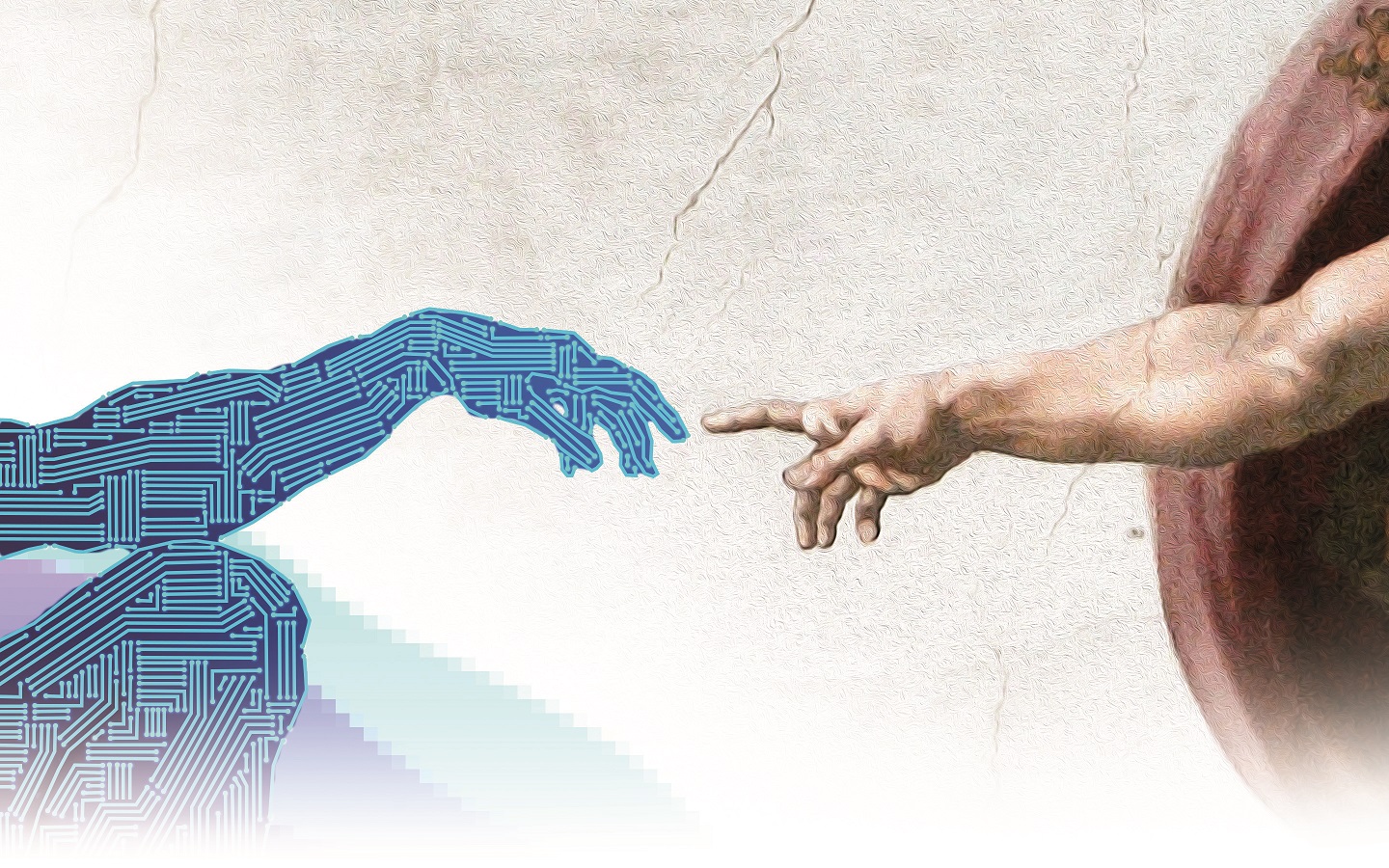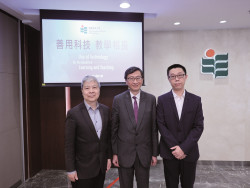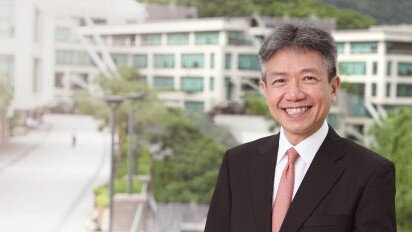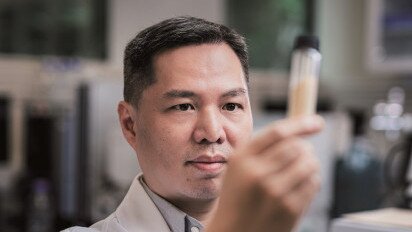 In view of the unstoppable advancement in Artificial Intelligence (AI) technology, EdUHK has announced a set of pedagogical approaches, which encourage faculty to embrace new technology by using generative AI-enabled tools to enhance learning efficacy.
In view of the unstoppable advancement in Artificial Intelligence (AI) technology, EdUHK has announced a set of pedagogical approaches, which encourage faculty to embrace new technology by using generative AI-enabled tools to enhance learning efficacy.
AI as a teaching partner
While AI has never been talked about as much as in recent months, it has in fact long been a part of our daily lives. The technology can be used for voice assistants in smartphones, executing instructions such as playing music or giving directions; and can also familiarise itself with what we like, using algorithms to recommend videos or products we may find of interest. With some technology giants having rolled out generative tools, the public can now see for themselves the ability AI has to draft legal documents, write articles, and even take examinations. Understandably, this has caused a stir among the academic community.
EdUHK President (Designate), Vice President (Academic) and Provost Professor John Lee Chi-Kin says, “The emergence of AI technology has resulted in tremendous changes to conventional teaching.” He believes it can stimulate future teachers’ innovative thinking, and suggests educators should be more proactive than ever in facilitating students’ understanding of the strengths and limitations of AI, while promoting the responsible use of the technology.
Professor Kong Siu-cheung, Research Chair Professor of E-Learning and Digital Competence of Department of Mathematics and Information Technology cum Director of Centre for Learning, Teaching and Technology, suggests AI will only come to play a more dominant role in society. “In the face of a society increasingly dominated by AI, there is no way we can stop students from using it. Instead, we should adopt it as soon as possible to adapt to its evolution.”
Academic integrity is paramount
From the start of the new academic year, students will be able to employ generative AI-enabled tools in class and for their coursework. However, they must declare this by including the tool’s output as an appendix, as well as a reflection on their experience using AI. “Answers suggested by these tools do not indicate sources or provide a literature review. If you just copy directly from what they produce, it leads to many pitfalls,” says Professor Kong. He is confident that faculty members can exercise their professional judgement, with the help of detection software, to ensure against plagiarism, in compliance with standards on academic integrity.
There are also plans to incorporate AI elements into the University’s General Education curriculum, allowing students to build an ePortfolio (three credit points) with support from AI tools. In using the tools, students should formulate a writing plan and be able to prompt questions, check the generated AI output for accuracy, and search for other literature and references to support their argument. Finally, they should have their work peer-reviewed and reflect on the writing and learning processes in using the new technology.

Launch of AI and EdTech programme
EdUHK has launched a Bachelor of Science (Honours) in Artificial Intelligence and Education Technology programme, which teaches AI-related knowledge such as Natural Language Processing, machine learning, and deep learning. The programme aims to help students discern the strengths and weaknesses of big data sources, so they can identify and analyse the usefulness of the information. Programme Leader Dr Henry So Chi-fuk says, “The biggest advantage of studying AI at EdUHK is the opportunity to interact with peers who major in education, understand the challenges they encounter in schools and classrooms, and devise AI solutions for them.”
Andy Wong Ching-hin, a Year 3 student on the programme, says that the process of using generative AI-enabled tools requires thought. Since the technology is not yet that mature, it is merely like seeking another person’s opinion, and answers provided by the generative tools cannot be used crudely. Toby Chui Tung-hei, a Year 1 student, said the answers provided by generative AI-enabled tools are “generic” and they do not have the ability to differentiate fact from fiction. However, she sees them as very powerful in eliminating computer program bugs and processing numbers.
Collaboration with industry partners
The Bachelor of Science (Honours) in Artificial Intelligence and Education Technology programme also includes a six-credit-point internship, in the public or private sector. Participating organisations include the government's Census and Statistics Department, the Hong Kong Productivity Council, the Hong Kong Observatory, and NetDragon Websoft Holdings Limited. Furthermore, EdUHK has recently signed a memorandum of understanding with Huawei, to collaborate in establishing an Information and Communication Technology (ICT) Academy, and to explore innovative applications of AI in the field of education.





